Abstract
Since 1945 at least five United Nations organisations have become substantially involved in international health activities. This has led to considerable confusion among policy makers, scholars, and UN staff over distinct and appropriate mandates. Interviews with staff an a historical analysis have shown that while formal mandates have been complementary, effective mandates have led to an unclear delineation of activities. The process of translating formal into effective mandates have been influenced by the decentralised nature of the UN, lack of a master plan for its activities, the considerable growth in the policy agenda and the shift towards a multisectoral approach to health. The identification of each organisation's comparative advantage, at both the global and country levels, is one way of understanding what each organisation does best and perhaps should be doing. There is a need for improved mechanisms to define effective mandates, taking into account comparative advantages, if the mandates of UN organisations are appropriate to meet future challenges in international health.
Full text
PDF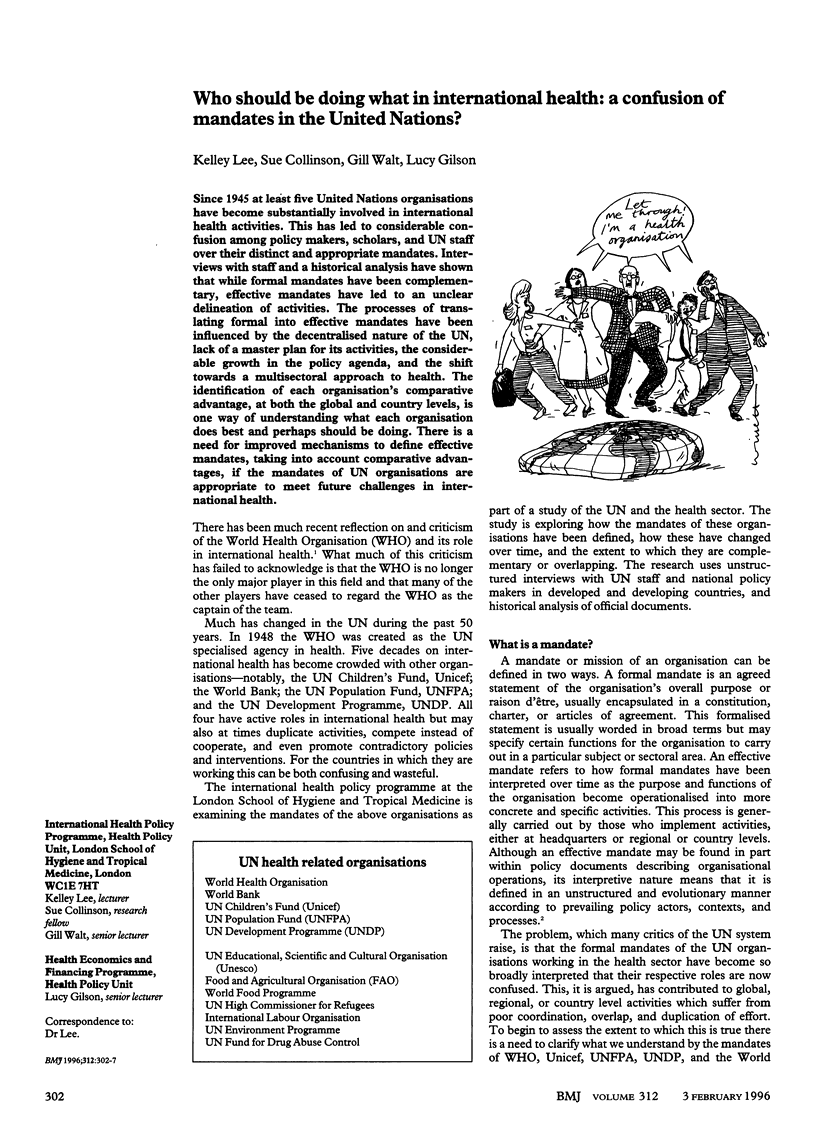
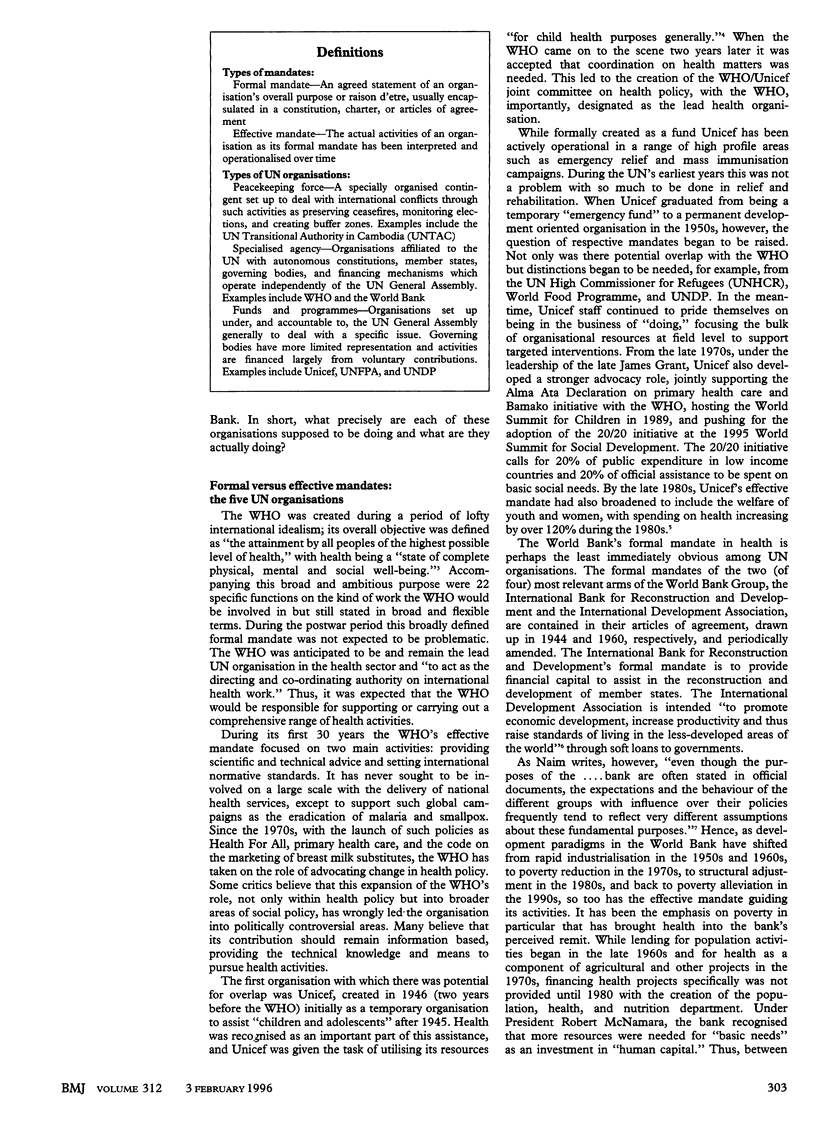

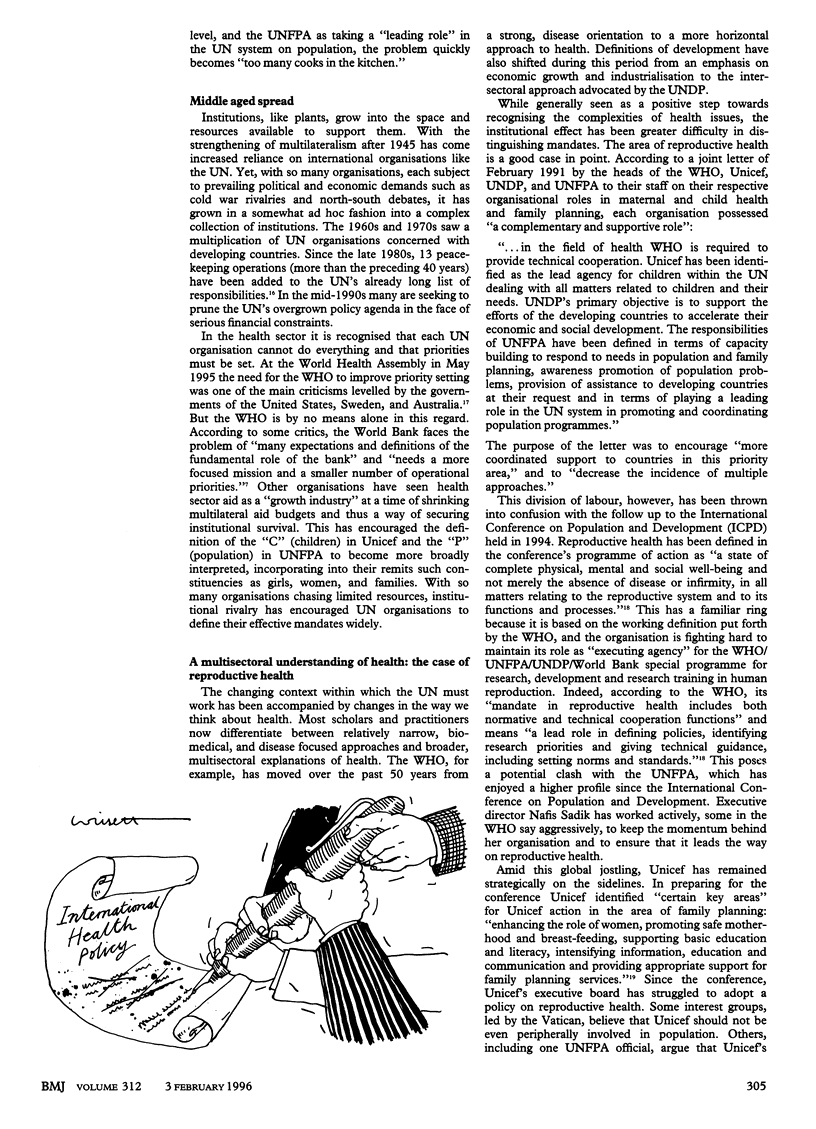
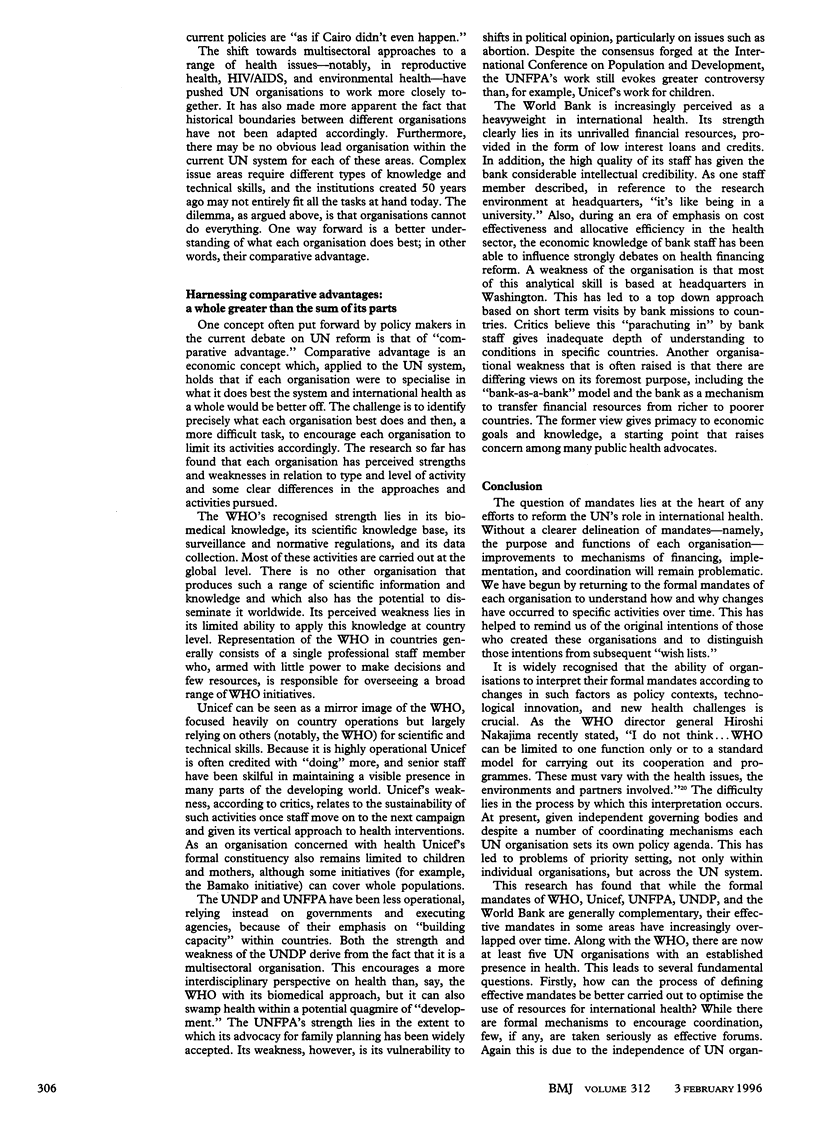
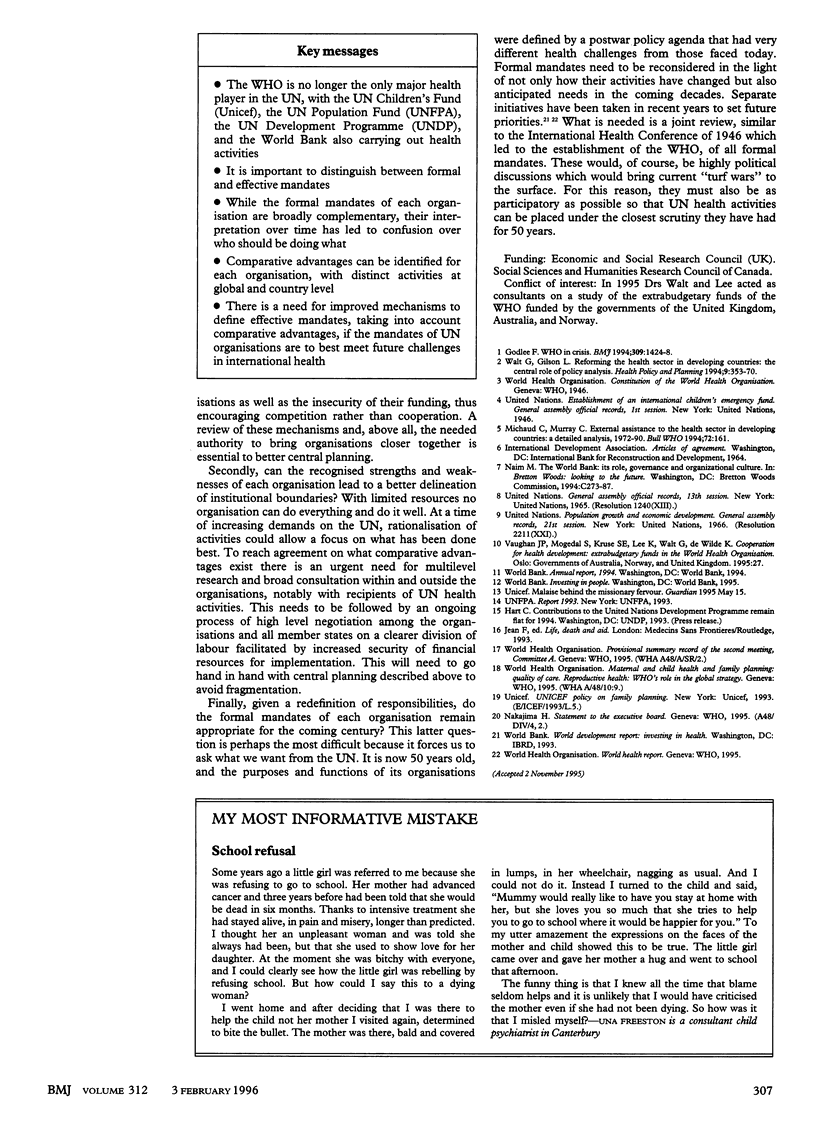
Selected References
These references are in PubMed. This may not be the complete list of references from this article.
- Godlee F. WHO in crisis. BMJ. 1994 Nov 26;309(6966):1424–1428. doi: 10.1136/bmj.309.6966.1424. [DOI] [PMC free article] [PubMed] [Google Scholar]
- Walt G., Gilson L. Reforming the health sector in developing countries: the central role of policy analysis. Health Policy Plan. 1994 Dec;9(4):353–370. doi: 10.1093/heapol/9.4.353. [DOI] [PubMed] [Google Scholar]


